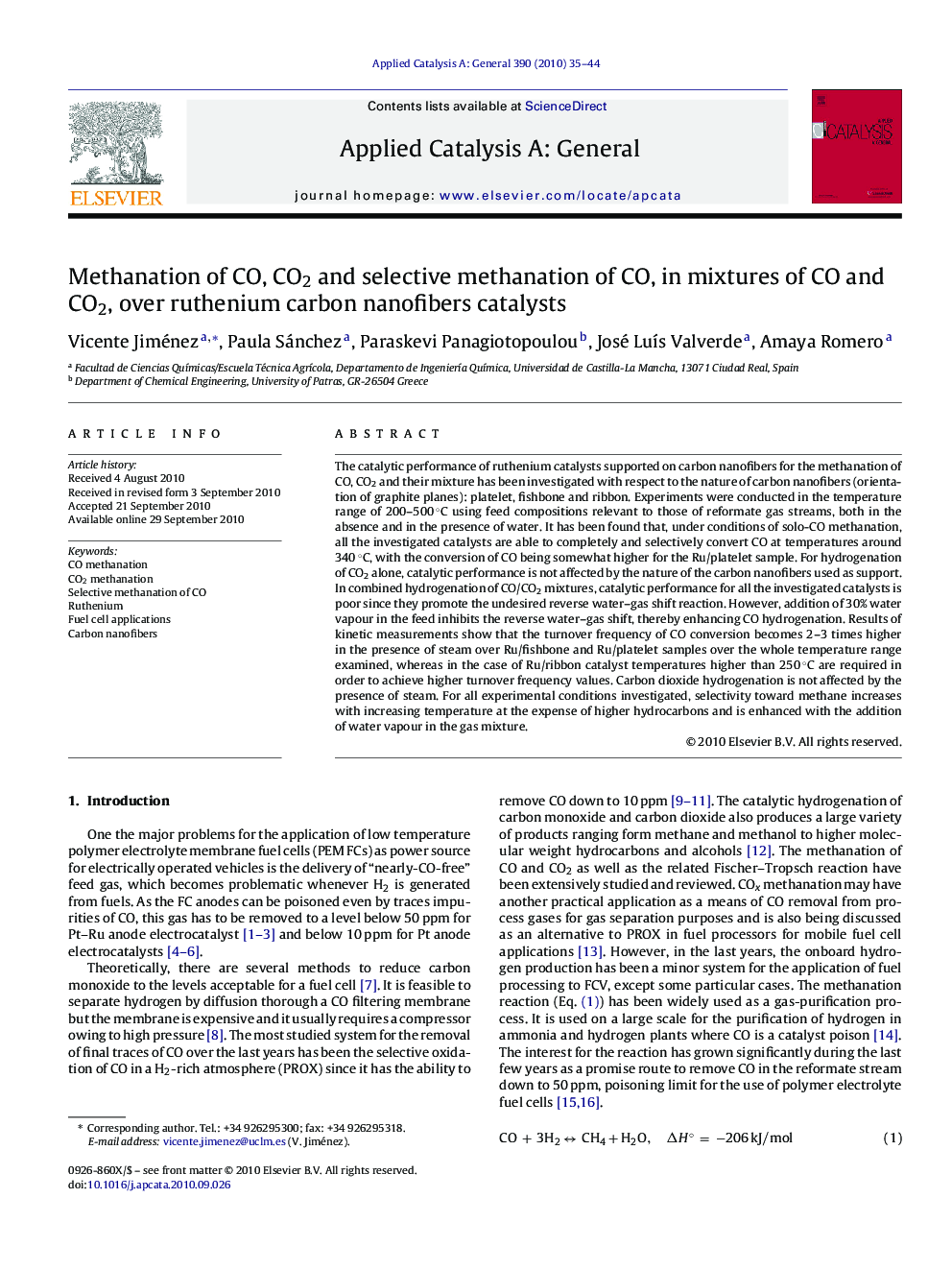| Article ID | Journal | Published Year | Pages | File Type |
|---|---|---|---|---|
| 41521 | Applied Catalysis A: General | 2010 | 10 Pages |
The catalytic performance of ruthenium catalysts supported on carbon nanofibers for the methanation of CO, CO2 and their mixture has been investigated with respect to the nature of carbon nanofibers (orientation of graphite planes): platelet, fishbone and ribbon. Experiments were conducted in the temperature range of 200–500 °C using feed compositions relevant to those of reformate gas streams, both in the absence and in the presence of water. It has been found that, under conditions of solo-CO methanation, all the investigated catalysts are able to completely and selectively convert CO at temperatures around 340 °C, with the conversion of CO being somewhat higher for the Ru/platelet sample. For hydrogenation of CO2 alone, catalytic performance is not affected by the nature of the carbon nanofibers used as support. In combined hydrogenation of CO/CO2 mixtures, catalytic performance for all the investigated catalysts is poor since they promote the undesired reverse water–gas shift reaction. However, addition of 30% water vapour in the feed inhibits the reverse water–gas shift, thereby enhancing CO hydrogenation. Results of kinetic measurements show that the turnover frequency of CO conversion becomes 2–3 times higher in the presence of steam over Ru/fishbone and Ru/platelet samples over the whole temperature range examined, whereas in the case of Ru/ribbon catalyst temperatures higher than 250 °C are required in order to achieve higher turnover frequency values. Carbon dioxide hydrogenation is not affected by the presence of steam. For all experimental conditions investigated, selectivity toward methane increases with increasing temperature at the expense of higher hydrocarbons and is enhanced with the addition of water vapour in the gas mixture.
Graphical abstractFigure optionsDownload full-size imageDownload high-quality image (39 K)Download as PowerPoint slideResearch highlights▶ In solo-CO methanation high conversion and selectivity is obtained. ▶ Catalytic performance of CO2 alone is not affected by type of CNFs. ▶ Addition of 30% water vapour in the feed inhibits the RWGS. ▶ Addition of 30% water vapour enhancing CO hydrogenation.
